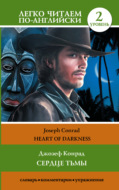Kitabı oku: «Кельтские сумерки. Уровень 1 / The Celtic Twilight», sayfa 2
BELIEF AND UNBELIEF
Some people in the western villages have doubts. Last Christmas, a woman told me that she didn’t believe in hell or ghosts. She thought that hell was made up by thepriest16 to make people behave, and she didn’t think ghosts could freely walk the earth. But she believed in fairies, leprechauns17, kelpies18, and fallen angels. I also met a man with a tattoo of a Mohawk Indian on his arm who had similar beliefs and doubts. He said that people never doubt that fairies are real.
A young girl who worked in the village of Grange, near the slopes ofBen Bulben19,disappeared one night around three years ago. People said that the fairies had stolen her.
A village resident tried to stop them from taking her. But he ended up with nothing in his hands except abroomstick20. The villagers asked the constable21 for help, and he immediately started searching every house. He also advised the villagers to burn all the ragweed22 on the field where the girl disappeared because ragweed is sacred23 to the fairies. They spent the whole night burning the ragweed while the constable said special words. In the morning, they found the little girl walking in the field. She said that the fairies had taken her very far away, riding on a magical horse. Eventually, she saw a big river, and the man who tried to save her was floating down the river in a small boat.
MORTAL24 HELP
Long ago in stories, men were taken away to assist the gods in a battle.Cuchullan25 helped the goddess Fand’s26 to defeat another nation and gained her favor. I’ve also heard that the fairies folk can’t even play their game called hurley27 unless they have a mortal on each team. Without the help of mortals, the fairies folk are weak and cannot even hit the balls. One day, me and my friend were walking on some marshy28 land in Galway when we saw an old, tough-looking man digging a ditch. My friend had heard that this man had seen something amazing. And eventually we get this story from him. When he was a young boy, he was working with around thirty other men, women, and boys. They were near Tuam29, not too far from Knock-na-gur. Suddenly, they all saw about one hundred and fifty fairies folk from a distance of around half a mile. There were two of them, he said, in dark clothes like people of our own time, who stood about a hundred yards from one another. The others wore colorful clothes.
He could not see what they were doing, but it seemed like they have been playing hurley. Sometimes they would disappear, and then they came back out of the bodies of the two men in dark clothes. These two men were of the size of living men, but the others were small. He saw them for about half-an-hour, and then the old man he was working for said, “Get on, get on, or we will have no work done!” I asked if he saw the fairies too, “Oh, yes, but he did not want work he was paying wages for to beneglected30.” He made everybody work so hard that nobody saw what happened to the fairies.
1902.
Ücretsiz ön izlemeyi tamamladınız.








